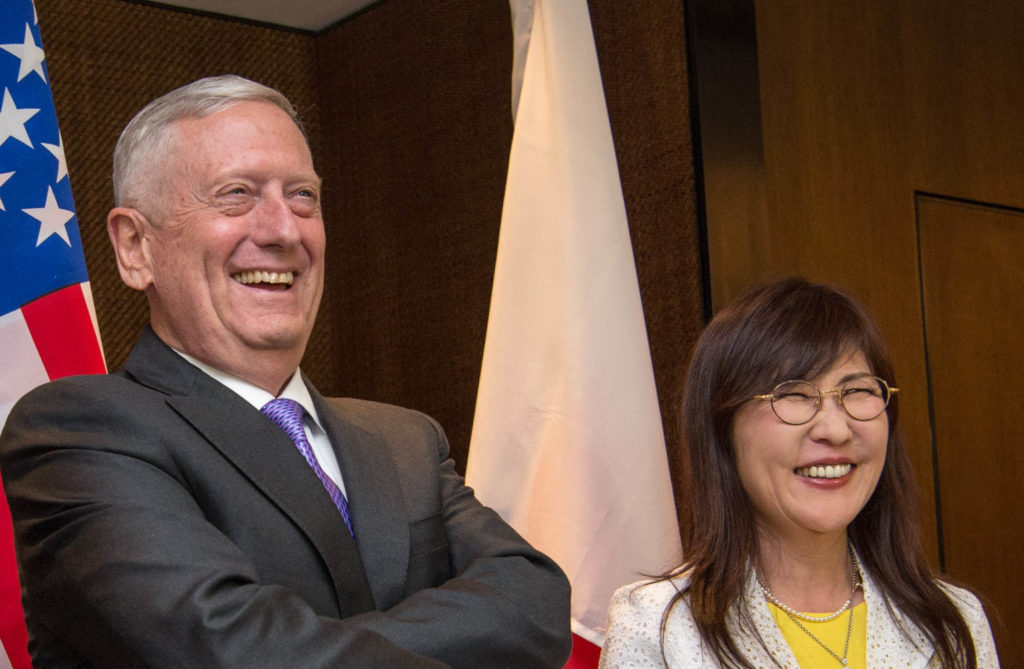
U.S. Secretary of Defense Jim Mattis and Tomomi Inada, the minister of defense for Japan, during the IISS 16th Asia Security Summit in Singapore on June 3, 2017. (DOD/Air Force Staff Sgt. Jette Carr)
The Shangri-La Dialogue concluded last weekend in Singapore, marked by sharp differences between Beijing and Washington over the South China Sea and Taiwan. Hailed by its sponsor, the International Institute for Strategic Studies (IISS), as the most important regular gathering of defense professionals in the Asia-Pacific region, the forum (previously known as the Asia Security Summit) remains the only annual meeting for defense ministers from across the Asia-Pacific region according to its website.
Since its launch in 2002, the Dialogue has attempted to build confidence and foster security cooperation among Asia’s defense and security policymakers. On Sunday, however, Beijing expressed strong dissatisfaction with some countries both inside and outside the region, who “have been bent on going against the trend, making repeated erroneous remarks, ignoring the facts and confusing black from white with entirely ulterior motives”. The remarks by Chinese Foreign Ministry spokeswoman Hua Chunying were in reference to “irresponsible remarks” made by U.S. Secretary of Defense James Mattis and Japanese Defense Minister Tomomi Inada.
In his speech at the forum, Mattis had alluded to China’s activities in the South China Sea, stating “We oppose countries militarizing artificial islands and enforcing excessive maritime claims unsupported by international law”. Inada, in her remarks, also mirrored Mattis’ remarks, saying “In the East and South China Seas, we continue to witness unprovoked, unilateral attempts to alter the status quo based on assertions incompatible with existing international norms”.
In her regular press conference on June 4, Hua Chunying disputed their remarks, stating “China builds relevant facilities on islands and reefs of the Nansha Islands for the purpose of improving the working and living conditions for people stationed there, better defending its sovereignty and performing China’s international obligations and responsibilities. It is totally within China’s sovereignty to deploy necessary defense facilities on its own territory. It is exercising the self-preservation and self-defense rights that a sovereign state is entitled to, and has nothing to do with “militarization”.
Unfortunately, some defense ministers at the forum would disagree with China’s claim of sovereignty over all the Spratly islands and their waters, which are contested among Brunei, Indonesia, Malaysia, Taiwan (ROC), the Philippines and Vietnam. Others would disagree with her definition of “militarization”, including the Merriam Webster dictionary, which defines “militarize”: 1) to give a military character to; 2) to equip with military forces and defenses; and 3) to adapt for military use.
According to AMTI, China “appears to have built significant point-defense capabilities, in the form of large anti-aircraft guns and probable close-in weapons systems (CIWS), at each of its outposts in the Spratly Islands.”
This latest refusal to acknowledge its militarization of occupied artificial islands bodes ill for any reasonable dialogue between Washington and Beijing – and will no doubt add to the distrust and discord between China the other littoral nations which claim features in the South China Sea.